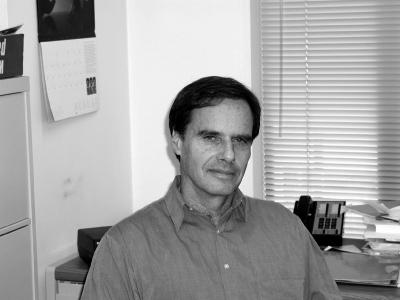February 20, 2003
Environment and disease
Dr. Harvey Checkoway, professor of epidemiology and environmental health and director of the UW Superfund Basic Research Program Project, will present the School of Public Health and Community Medicine’s Distinguished Faculty Lecture this quarter.
Checkoway, whose research and teaching focus on occupational and environmental risk factors for chronic diseases, will speak on “Identifying Environmental Risk Factors for Disease: From Slam Dunks to Needles in Haystacks.” The lecture begins at 3:30 p.m., Thursday, Feb. 27, in room T-739 of the Health Sciences Center. Everyone is welcome and a reception will follow.
He has conducted a wide variety of studies to pin down environmental risk factors for Parkinson’s disease, and on silicosis and cancer risks among workers exposed to silica. He is also conducting a study on relationships between particulate air pollution and cardiac arrest.
Checkoway is currently leading an epidemiological study of Parkinson’s disease among enrollees of Group Health Cooperative in the Puget Sound area, comparing past environmental and lifestyle factors in patients who have developed Parkinson’s and in a control group without neurologic disorders. Factors of particular interest in this study are environmental and occupational exposures to pesticides and metals, smoking, diet, medications taken for other diseases or conditions, and family history of Parkinson’s.
The study is also looking at genetic variability among those enrolled, to see if it is possible to identify specific genetic differences that may make certain segments of the population more susceptible to environmental toxins.
Although Parkinson’s disease was first described in 1817 and the underlying physical defect—destruction of the brain cells that produce the essential neurotransmitter dopamine—has been understood for many years, researchers have not been able to identify a single cause or learn whether some people are more vulnerable. Only about 10 percent of cases seem to be inherited. Answers to these questions could lead to effective prevention of a disease that affects millions.
Checkoway earned a bachelor’s degree in psychology from Boston University and then a master’s in public health from Yale University in epidemiology. In 1978, he received a Ph.D. in epidemiology from the University of North Carolina in Chapel Hill.
At the UW, in addition to his other appointments, he directs the Training Grant in Environmental and Molecular Epidemiology, funded by the National Institute of Environmental Health Sciences.



